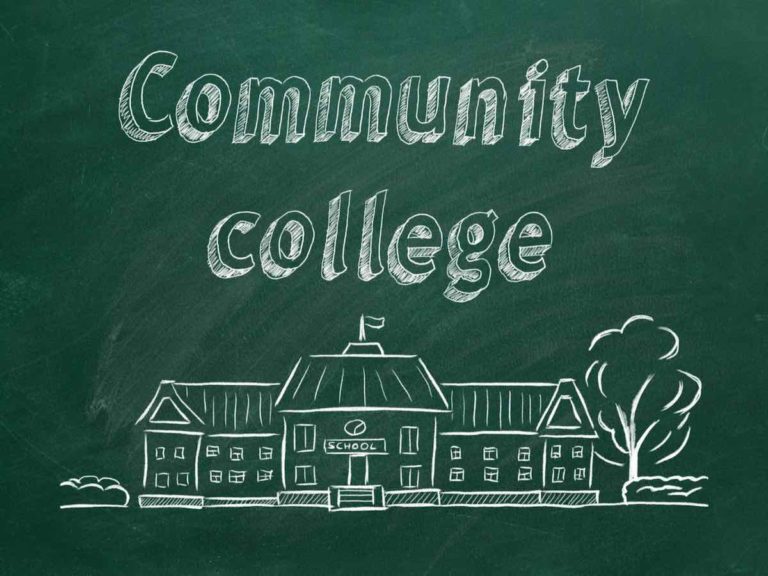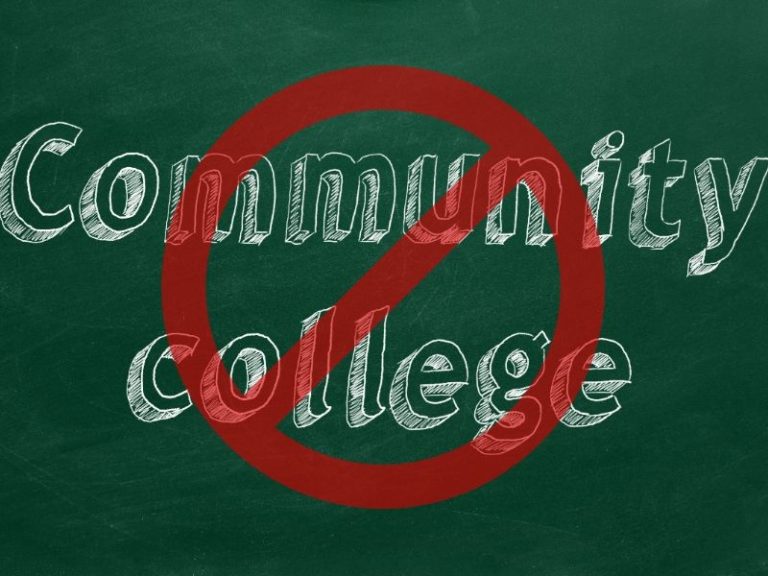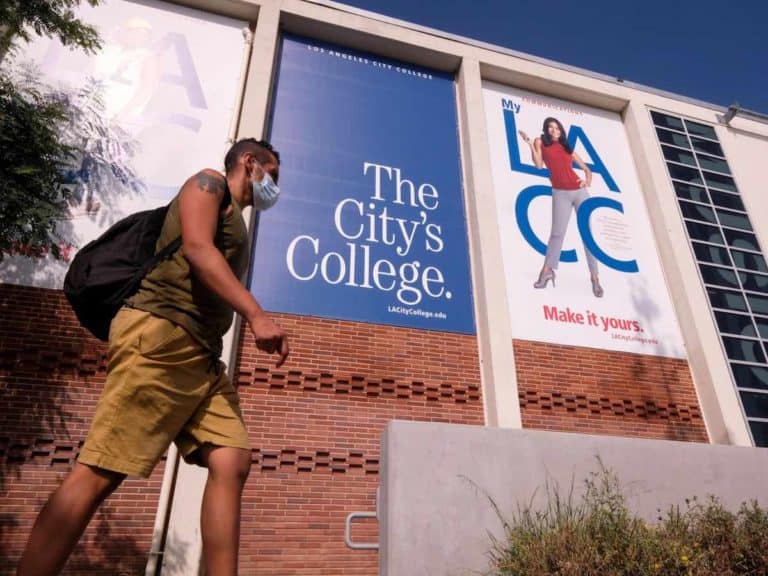Community College and Social Life: Your Questions Answered
There are many things that make community colleges different from four-year institutions. Leading the list are lower tuition costs, shorter programs, more accessible campuses, easier application processes and smaller classes.
And speaking of which, at four-year schools, it’s not uncommon for some classes to be held in lecture halls.
Meanwhile, the student-to-faculty ratios at community colleges are generally smaller. As a matter of fact, classes usually do not exceed 20 students. While it comes with perks, it may also limit the number of individuals you can meet and make friends with. And this is why you fear that you may not have a healthy social life as a community college attendee.
In this post, I will give you an idea of what social life is like for students at community colleges. By the time you reach the end, you will realize that it’s not as bad as you have heard or read it to be.

Can You Have a Social Life in College?
It’s possible to have a social life in college. As a matter of fact, it can be richer and deeper than in high school because students get to meet people from various classes, organizations, extracurriculars and even work. However, different college students have different time and energy for socializing.
The general consensus is that college is so much harder than high school.
Because of this, many college-bound teens fear that they may have to spend a lot of their time working hard on a degree and devote very little to none to making new friends and having fun.
While it’s true that college requires more time, dedication and labor in order for students to succeed, it still leaves plenty of room for socializing. However, how much and how far college students can socialize can be determined by a number of factors, and some of the most instrumental ones are:
School size
Naturally, the bigger the campus, particularly in terms of enrollment size, the better the chances of attendees meeting like-minded individuals and creating a larger social circle. But small colleges and universities promote a more close-knit community where students can know everybody’s names and even become friends with their professors.
Learning type
In this day and age, students who wish to get their hands on a college degree need not necessarily step foot on a physical campus — they can do so via the internet. Needless to say, online students, especially those who attend classes 100% through the internet, may not experience any of the college’s campus life.
Selectivity level
According to an article by the Association for Psychological Science (APS), students attending selective colleges may develop a less healthy self-image as a result of comparison with other high-achieving students. This may serve as a hindrance for them to socialize and may even negatively impact their attainment levels in the future.
Major requirements
Some majors are simply more challenging than the rest. Commitment to a difficult one can hinder degree-seeking students from socializing enough for much of their time and energy to go toward the completion of requirements. For instance, those who are majoring in architecture tend to have an average of only 5.29 hours of sleep per night.
Enrollment
Part-time students are non-traditional students who are taking fewer than 12 credits per semester and living off-campus. Most of them are mature students, too, who are employed or busy looking after their kids. Due to all these things, a lot of part-time students do not have the time or energy or enthusiasm to establish on-campus social lives.
Residence
Generally speaking, students living on-campus tend to have better social lives than those who live elsewhere. As a matter of fact, a study says that undergraduates who live on the school grounds tend to have better social lives and even quality of their overall lives. The study recommends trying to live on-campus even just for one academic year.
Employment
Based on a report by the National Center for Education Statistics (NCES), around 74% of part-time college students are employed. Needless to say, these students spend the rest of their time making money rather than hanging out with their classmates — it’s not unlikely for them to socialize with their co-workers more than their classmates.
Personality
Some students are simply not fond of socializing. Some may feel anxious whenever they mingle with people, while others may prefer to partake in solitary activities. No matter if attending the top party schools in the land or some of the most diverse colleges, these students may still feel that socializing is not for them.
Is Community College Fun?
For students who find fulfillment in low-cost tuition, flexible schedules, accessibility and diversity, attending a community college may be considered fun. For many community colleges, nothing can be more gratifying than being able to work on a degree while staying on budget and maintaining their work or lifestyle.

Different students attend college after graduating from high school for different reasons.
Based on a survey conducted by Niznik Behavioral Health (NBH), which specializes in alcohol and drug rehabilitation and addiction recovery services, the following are the reasons why they go to college:
| REASONS | PERCENTAGE |
| To further education | 90% |
| Parents’ order | 49% |
| Availability of the desired program | 37% |
| To get away from home | 35% |
| To party | 27% |
| Received an academic scholarship | 24% |
| To experience Greek life | 5% |
| Received an athletic scholarship | 5% |
| To participate in sports | 4% |
Based on the table above, more than one-fourth of all college-bound teens go to college with partying in mind.
And for those who can’t wait to experience partying in college, needless to say, party schools are the premier destinations. Simply put, party schools, which, by the way, are usually exclusive to the US, are colleges and universities notorious for get-togethers that typically involve alcohol and drug use.
Something shared in common by most, if not all, party schools are the presence of a bustling Greek life — it’s not uncommon for fraternities and sororities to host some of the biggest on-campus shindigs.
There are institutions with Greek life that are not necessarily party schools, though.
Unfortunately for those who are looking to party a lot but bound to attend two-year schools, community colleges do not have Greek life. That’s because the vast majority of them do not have housing, and fraternities and sororities live in houses. And since there are no hosts around, there are no such things as frat parties, rush parties and mixers.
There’s no need to despair if you are gearing up to become a community college student: those who are interested in experiencing Greek life may join honors society instead.
But it’s important to note that honors societies are not the same as fraternities and sororities. Many students make the mistake of thinking they are one and the same for they both use Greek names. In a nutshell, honor societies are organizations at colleges and universities for like-minded students.
Some of the most popular and prestigious honor societies in the land include:
Phi Beta Kappa
In the US, Phi Beta Kappa is the oldest academic honor society — it was founded in 1776. To date, the number of US presidents who became a member of Phi Beta Kappa amounts to 17.
Phi Kappa Phi
Accepting only undergraduate students who are in the top 7.5% of their second-semester class, Phi Kappa Phi is the most selective honor society. On the other hand, it only accepts graduate students who are in the top 10%.
Alpha Lambda Delta
Founded at the University of Illinois, whose Urbana-Champaign campus is ranked #47 in National Universities by US News, Alpha Lambda Delta has over 900,000 members and more than 270 chapters across the country.
Omicron Delta Kappa
Making Omicron Delta Kappa a history maker is that it’s the first honor society in the US to give recognition for leadership on a national level — to date, more than 300,000 US students have been recognized by it.
A lot of honor societies from four-year institutions have chapters at many community colleges, serving as alternatives to fraternities and sororities. And just like fraternities and sororities, joining them allows you to partake in charity events, connect with members from other chapters, and even enjoy scholarships and study abroad programs.
Because of this, you can join an honor society as a form of preparation for Greek life in which you may be planning on immersing yourself once you have transferred schools to earn a bachelor’s degree.
Being a member of an honor society will certainly make you attention-grabbing to a fraternity or sorority.
Are There Student Clubs at Community Colleges?
Just like four-year universities, community colleges have various campus- and student-run clubs, too, of which attendees may choose to become members. But since community colleges usually have smaller enrollments, clubs typically have fewer members, thus requiring more active participation.
Not all community colleges have honor societies. However, it’s certain that they have clubs available for students with similar interests for various purposes, ranging from academic, literary, social, and political to athletic.
Here are some of the benefits of joining a club at a community college:
Self-awareness
Especially if you are a fresh high school graduate who is still on the path to maturity, being a club member at a community college can help you learn more about yourself and identify your strengths and goals in life. This may also help you determine which bachelor’s degree program you should opt for after obtaining your associate.
Development of soft skills
Joining clubs allows you to obtain and polish skills like leadership, communication, organization, decision making and critical thinking, all of which are some of the things that employers look for in candidates. Many of the skills you already possess can also be broadened and improved with the help of community college clubs.
Networking
Especially if you are thinking about getting a job after earning your associate’s degree, it’s important to start exposing yourself to people who could refer you to employers — nothing can help you meet and make friends with them more than being a member of clubs, particularly those that have something to do with your career goal.
Make new friends
It’s at community college clubs where you can meet individuals who could be your pals for a lifetime because everyone has practically the same habits, interests, opinions and ideas. In a few, we will talk about how it’s like making friends at a community college at a more in-depth level, so don’t stop reading now.
Different clubs can come with different benefits, so it’s a good idea to choose wisely no matter if your goal is to enhance your strengths, pursue a passion in life, meet new people or reduce stress.
Do take note that the experience and perks of being a member of a club at a community college are the same as those as being a member of a club at a four-year institution. So, in other words, it can prepare you for clubs you might be interested to join should you transfer to a university before or after you graduate from a community college.
Unhappy with the available clubs at the community college you are planning on attending?
Fret not if you want to make sure that you will have a well-rounded college experience and healthy social life as you work on an associate degree. That’s because you can always establish your own club in response to the need of students for community, networking or outreach toward a communal or personal matter.
But, as expected, there are requirements to meet when setting up a club, be it at a community college or a four-year counterpart. For instance, it must have at least a specific number of willing members.
Is It Hard to Make Friends at Community College?
The general consensus is that it is somewhat harder to make friends at community colleges than at four-year institutions. It’s for the fact that many of the students have work, which they are busy with before or after classes. In addition, many are part-time students and thus do not spend a lot of time on campus.

Many perks are associated with attending a community college. And one of those is that students can have more flexible schedules that suit their needs and lifestyles more.
And a reason why flexibility counts among community college attendees is that most of them have jobs.
Based on an NCES report, around two-thirds of all students attending community colleges in the US have jobs. Of those who are employed, 35% are working part-time. On the other hand, 32% are working full-time. With the need to juggle studies and work, many do not have enough time to meet friends or maintain friendships on campus.
If you were one of those students at two-year schools with a full-time job, you’d probably spend any free time you have resting or sleeping rather than hanging out with your classmates.
Another thing that can make building friendships at community colleges more challenging than at their four-year rivals is that the majority of the attendees are enrolled part-time. Simply put, part-time students are those who are enrolled for less than 12 credits per term — those who are enrolled for 12 credits or more are, needless to say, full-time students.
Based on a Think Impact report, up to 64% of students at community colleges are enrolled part-time.
There are various reasons why most of those who are attending community colleges — and some of those who are going to four-year institutions, too — are part-time students, such as:
Employment
It’s not unlikely for students who have full-time and even part-time jobs to take fewer than 12 credits per semester in order to be able to balance their jobs and studies more effectively.
Family
More than a quarter of all community college students are already parents, and some of them may have no choice but to enroll part-time, especially those who cannot afford to pay for childcare.
Schedule
Non-traditional students are busy with things besides college. That’s why they have to go for schedules that go well with their hectic timetables. Running out of conveniently scheduled courses may force them to enroll part-time.
Limited budget
Part-time students are charged by community colleges as well as four-year institutions per credit. Enrolling part-time makes it possible for community college students to stay within budget.
Because most students at community colleges have jobs and/or are enrolled part-time only, making friends may be the least of their priorities. And if you deem making friends as you work on your associate degree program highly important, fret not as you can still meet people on campus, although you may have to look and try harder than usual.
But do you need friends in college really? According to experts, having friends can in fact help with your academic development and self-esteem. However, if it’s something that can derail your college goals instead, then it’s probably a much better idea to concentrate more on your studies.
And also, having few quality friends whom you can count on is better than having lots but none are real friends.
Just Before You Enroll in a Community College
The social life at community colleges may not be as big and important as that at four-year institutions alright. However, there’s still room for getting to know people and potentially building friendships that can last until the end of the two-year degree program, for a few years after college or an entire lifetime.
Even though the community college you are planning on attending is far from being a party school, you can still socialize and have the college experience, albeit not as robust as attending a four-year school and living on-campus.
Disclaimer: The views and opinions expressed in this article are those of the authors and do not necessarily represent those of the College Reality Check.





